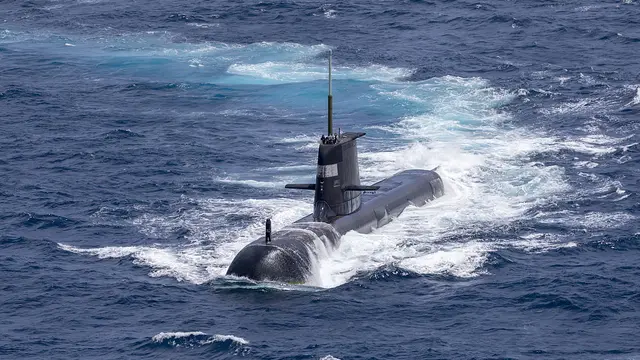Cambodian Prime Minister Samdech Techo Hun Sen said on Monday that the tripartite AUKUS alliance, a military pact among the U.S., Britain and Australia, is becoming a concern for the Association of Southeast Asian Nations (ASEAN).
Under the AUKUS alliance, which was announced in September 2021, Australia will be able to build nuclear-powered submarines with technology provided by the U.S. and Britain.
Experts say the AUKUS scheme represents the first time a loophole in the 1968 Nuclear Non-Proliferation Treaty (NPT), and has been used to transfer fissile material and nuclear technology from a nuclear weapons state to a non-weapons state.
It also makes arms control experts nervous because it sets a precedent that could be used by others to hide highly enriched uranium, or plutonium, the core of a nuclear weapon, from international oversight.
"The small-scale alliance relevant to nuclear-powered submarines among the U.S., Britain and Australia is becoming a concern for ASEAN and countries in the region because ASEAN is a nuclear weapon-free zone, and we oppose nuclear weapon proliferation," Hun Sen said in a speech during the graduation ceremony of nearly 6,000 students at the Royal University of Law and Economics.
He said this military alliance is the "starting point of a very dangerous arms race" in the region. "If this situation continues, the world will face a bigger danger," he added.
Joseph Matthews, a senior professor at the BELTEI International University in Phnom Penh, said AUKUS is posing a major security threat to ASEAN and the whole Asian region.
"This alliance will trigger a conventional and nuclear arms race in the region, and thus destabilizes the peace and security, undermines the economic development and destroy the ASEAN's centrality," he told Xinhua News Agency.
Another expert said that it's unnecessary for Australia to be involved in this arms race.
"The U.S. has enlarged its nuclear footprint using the money from Australia which was, in turn, dragged onto the U.S.' chariot and made trouble for itself," Lyu Xiang, a research fellow at the Institute of American Study at the Chinese Academy of Social Sciences told CGTN.
(Xinhua)
 简体中文
简体中文

